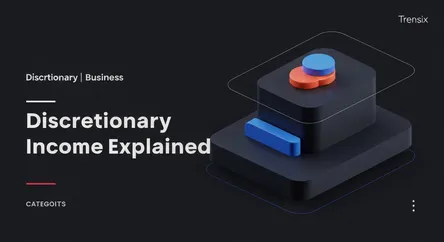Business
Discretionary Income Explained

Learn about discretionary income, the money left after taxes and essentials. Understand how it impacts your spending, saving, and financial freedom.
What is it?
Discretionary income is the amount of an individual's income that is left for spending, investing, or saving after paying taxes and essential living expenses. These necessities include costs like housing, food, transportation, and healthcare. It's often called 'fun money' because it's what you can use for non-essential items like entertainment, vacations, and hobbies. It differs from disposable income, which is simply your total income minus taxes; discretionary income takes it a step further by also subtracting the costs of necessities.
Why is it trending?
With rising inflation and economic uncertainty, more people are tracking their finances closely. The concept of discretionary income is trending because it provides a clear picture of one's true financial flexibility. As the cost of essential goods and services increases, many find their discretionary income shrinking, prompting a re-evaluation of budgets and spending habits. Economists also watch this metric closely as it's a key indicator of consumer confidence and the overall health of the economy. A decline in discretionary spending can signal an economic slowdown.
How does it affect people?
Discretionary income directly impacts an individual's quality of life and ability to achieve financial goals. Having a healthy amount of discretionary income allows for greater financial freedom, enabling people to save for retirement, invest in the stock market, pay down debt faster, or simply enjoy life's luxuries. Conversely, low or non-existent discretionary income can lead to financial stress, limiting opportunities for personal enjoyment and long-term wealth building. It forces individuals to make difficult choices about their spending and can make it challenging to handle unexpected expenses.